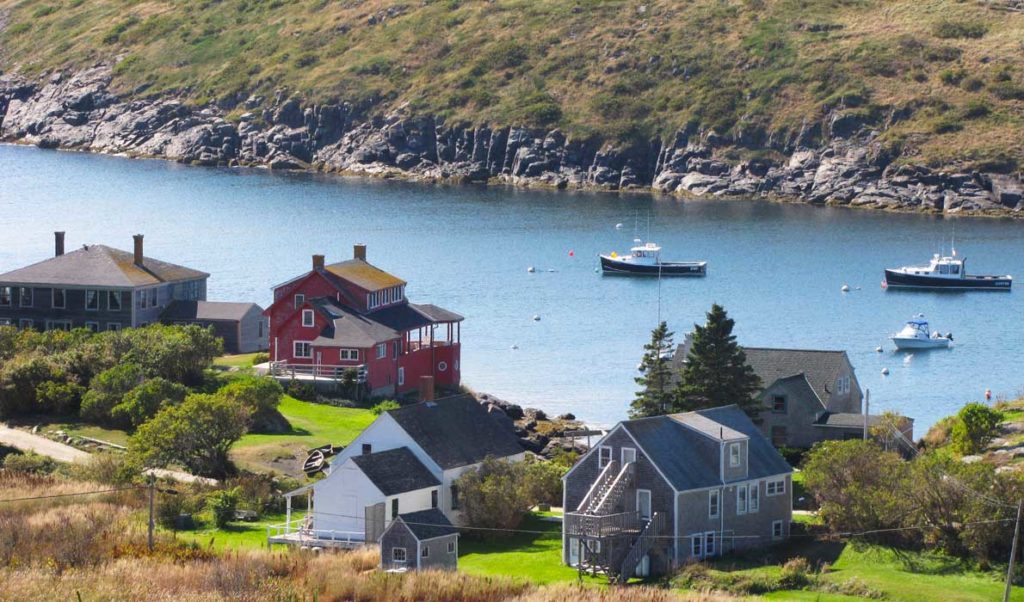Renewable energy is critical for all of us as a response to climate-driven changes that are already impacting our fisheries and coastal infrastructure. It is important that we continue to move toward clean energy while also considering the costs inherent to energy generation.
Leaders of island communities not connected to the grid, like Monhegan and Matinicus, have understood this out of necessity for generations. These same communities struggle with extraordinarily high energy costs, one of many issues threatening their sustainability. Today, Monhegan pays $0.70 per kWh, more than four times the mainland average.
The Island Institute was created to assist communities in responding to this kind of challenge. Our mission is to work to sustain Maine island and remote coastal communities, and to share information and experiences to further the sustainability of communities here and elsewhere.
The Island Institute has been involved in offshore wind siting since it became an interest and concern to coastal and island communities in 2008.
The Island Institute supports renewable energy development, provided that projects are appropriately sited and that benefits outweigh costs to impacted communities. We assist communities in local processes to make these cost/benefit determinations.
On Swan’s Island, we pivoted to provide support to explore other options (see op-ed in this issue) when it became clear that wind power would not be an economic solution for that community. If there is overwhelming support for a renewable energy project, we help the community pursue the solution. A good example of this was our support of the Fox Islands Electric Cooperative on Vinalhaven, which developed three locally-owned, land-based wind turbines.
For eight years, Monhegan Island residents have faced the possibility that Maine Aqua Ventus (MAV, formerly DeepCWind) would site offshore wind turbines two miles south of the island at a site designated by the state legislature. The initial concept was to have a test site for a one-third scale floating turbine. The current proposal is to site two, full-scale, 6-megawatt turbines.
We started by asking community leaders how we could help. They asked that we help get them a “seat at the table” and a voice with project decision-makers. Through local leadership, the community began to organize itself and engage more effectively in the issue.
Coincidentally, we have been working with Monhegan on other energy issues including increasing energy efficiency in buildings and modernizing the on-island electricity generation systems.
In the absence of clear local consensus on the offshore project, we’ve worked as facilitators and as a source of information, supporting the town’s appointed energy task force in discussions with MAV. As islanders worked tirelessly to develop their own robust process to identify community priorities and concerns, we linked them with other island communities around the world and as close as Block Island, R.I. to learn how they responded to offshore wind. Today, local leaders continue to gather information to help better understand their options, with the goal of negotiating the best possible benefits package for the community.
One of those options might be for MAV to provide electricity via cable from the mainland at zero cost so that islanders would only pay the cost of distribution through their on-island grid. A cable connection would likely include fiber optic access and the potential economic opportunities that come with high speed broadband.
Another option could be a payment from MAV in lieu of power. How much, for how long? What types of compensation might be available for lost fishing revenues? These discussions are all ongoing between the community and MAV.
Understandably, some Monhegan residents are concerned about the prospect of wind turbines near the island. They have hired legal counsel to consider various actions and are working at the legislature to move the test site, an act that would inevitably bring an end to community’s discussions with MAV and likely the project itself.
It doesn’t take much of a fight to unravel the social ties that allow a small and remote community to function. Monhegan residents deserve the time to fully understand the potential impacts and benefits of this wind power project before dismantling it through legal action.
We will continue to support island leaders who want to see their local process through and choose their own path forward.
Rob Snyder is president of the Island Institute, publisher of The Working Waterfront. Follow Rob on Twitter @ProOutsider





